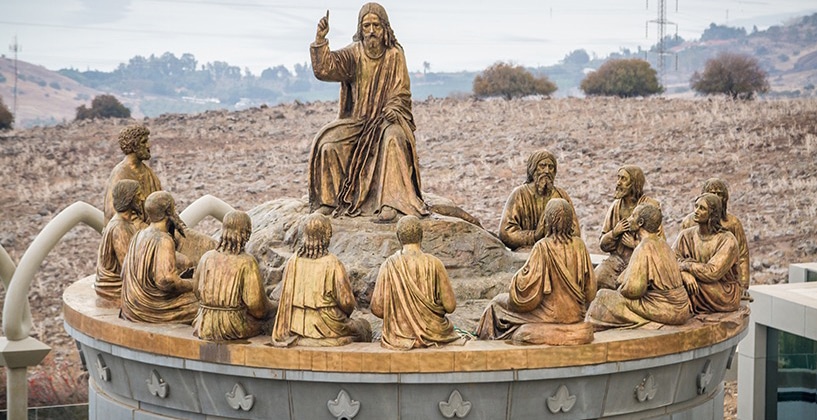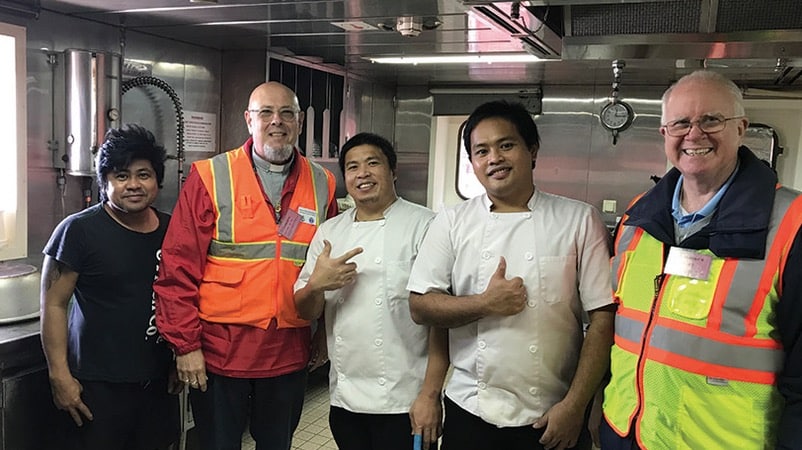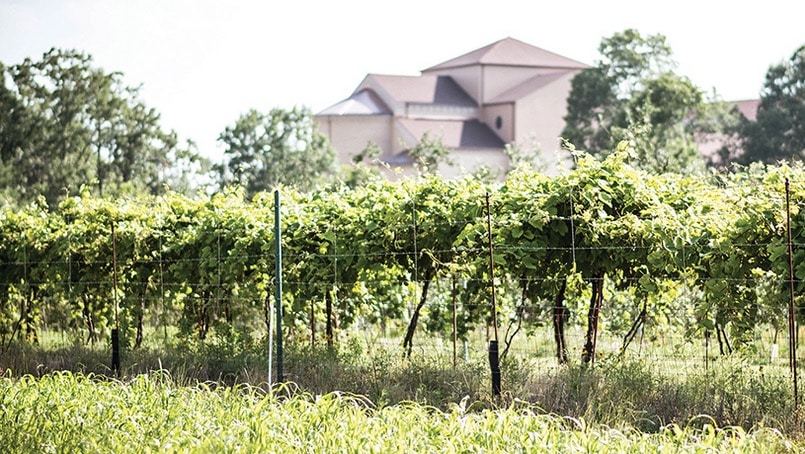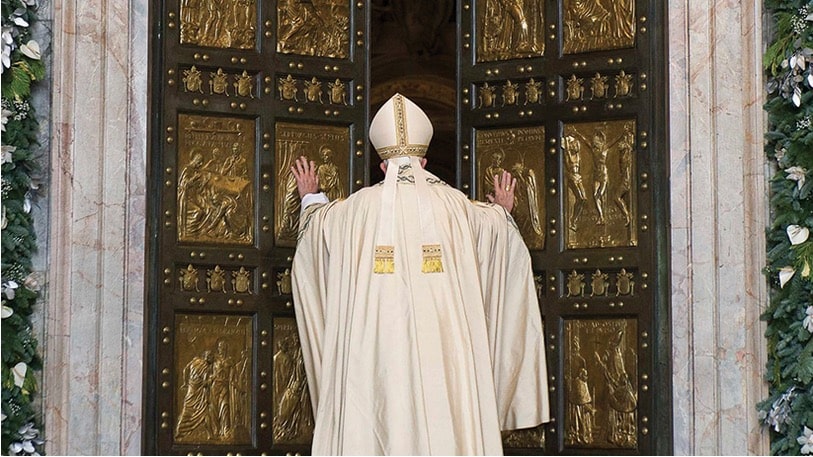The Sermon on the Mount, found in the Gospel of Matthew, is often recognized as the most thorough and systematic moral discourse of Our Lord. One of the most comforting and exhorting of passages has become known as the Beatitudes. More than just words of encouragement, the tradition of the Church down through the centuries has acknowledged that this is a profound call to action.

The Beatitudes are as follows: Blessed are the poor in spirit, for theirs is the kingdom of heaven; blessed are those who mourn, for they shall be comforted; blessed are the meek, for they shall inherit the earth; blessed are those who hunger and thirst for righteousness, for they shall be satisfied; blessed are the merciful, for they shall obtain mercy; blessed are the pure in heart, for they shall see God; blessed are the peacemakers, for they shall be called sons of God; blessed are those who are persecuted for righteousness’ sake, for theirs is the kingdom of heaven; blessed are you when men revile you and persecute you and utter all kinds of evil against you falsely on my account. Rejoice and be glad, for your reward is great in heaven (cf. Mt 5:3-12).
Perhaps we are all familiar with the Beatitudes, to a certain extent. We have heard them countless times; perhaps we even memorized them in school. But what do they mean? And why are they so important?
Understanding this gift
The Catechism of the Catholic Church provides a great deal of insight into the Beatitudes. First and foremost, “The Beatitudes are at the heart of Jesus’ preaching. They take up the promises made to the chosen people since Abraham. The Beatitudes fulfill the promises by ordering them no longer merely to the possession of a territory, but to the Kingdom of heaven” (No. 1716).
The Beatitudes are a roadmap given to us by Jesus, showing us how to follow his perfect example. We are all called to follow him and live a profoundly Christian life — and Mary and the saints give us their example of a life lived according to the Beatitudes. “The Beatitudes … express the vocation of the faithful associated with the glory of his Passion and Resurrection; they shed light on the actions and attitudes characteristic of the Christian life; they are the paradoxical promises that sustain hope in the midst of tribulations; they proclaim the blessings and rewards already secured, however dimly, for Christ’s disciples; they have begun in the lives of the Virgin Mary and all the saints” (No. 1717)
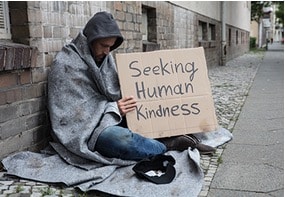
In April, Pope Francis’ third apostolic exhortation was released, entitled Gaudete et Exsultate (“Rejoice and Be Glad”), subtitled “On the call to holiness in today’s world.” A great deal of the exhortation is dedicated to the Beatitudes, and how Christians are called by Jesus to live this call to holiness through them.
In considering what constitutes holiness itself, Pope Francis writes, “nothing is more enlightening than turning to Jesus’ words and seeing his way of teaching the truth. Jesus explained with great simplicity what it means to be holy when he gave us the Beatitudes” (No. 63).
The pope directly associates this with what it means to be a good Christian. “The Beatitudes are like a Christian’s identity card,” he wrote. “So if anyone asks: ‘What must one do to be a good Christian?’, the answer is clear. We have to do, each in our own way, what Jesus told us in the Sermon on the Mount” (No. 63). This is how true happiness is to be gained, by aligning our wills and our actions with the will of God, as expressed in the Beatitudes: “The word ‘happy’ or ‘blessed’ thus becomes a synonym for ‘holy.’ It expresses the fact that those faithful to God and his word, by their self-giving, gain true happiness” (No. 64).
The words of Jesus as recorded in the Gospels, and indeed in the Sermon on the Mount, are “few and straightforward,” Pope Francis writes, “yet practical and valid for everyone, for Christianity is meant above all to be put into practice. It can also be an object of study and reflection, but only to help us better live the Gospel in our daily lives” (No. 109).
Finally, Pope Francis makes an important observation about just how we can live this call to holiness through the Beatitudes. “The Beatitudes are in no way trite or undemanding, quite the opposite. We can only practise [sic] them if the Holy Spirit fills us with his power and frees us from our weakness, our selfishness, our complacency and our pride” (No. 65).
Insights on the Beatitudes and how to live them can be gleaned from much more than magisterial documents or catechisms. This is something that the greatest minds of the Church have reflected upon for centuries, and spiritual writers of every age continue to do so.
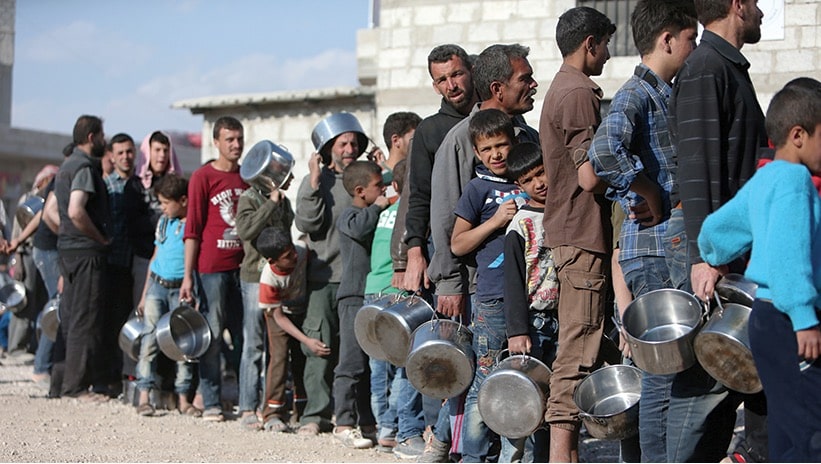
Life in God’s grace
Father Jeffrey Kirby is the author of “Kingdom of Happiness: Living the Beatitudes in Everyday Life” (TAN Books, $14.95). A priest of the Diocese of Charleston, South Carolina, Father Kirby has written extensively and continues to give talks on how to live the Beatitudes.
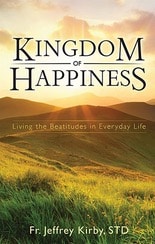
“Rather than a cold list of random moral aspirations or mere poetry, the Beatitudes are a dynamic summary of a life lived well and abundantly in God’s grace,” Father Kirby said. “As such, we can say the Beatitudes are the interior autobiography of Jesus Christ, who is ‘the Resurrection and the Life.'” As the Lord’s autobiography, the Beatitudes show us the dispositions of Jesus’ Sacred Heart, he said.
“This revelation can be helpful to any person who wants to live a happy and fulfilled life. It is especially important to Christians, however, since the Beatitudes clearly show us how we are called to live as disciples of the Lord and as the children of God. In this way, we see the relational and active reality of the eight Beatitudes.”
For many people, it can be difficult to see the Beatitudes as a calling, as something to live by. For these people, the Beatitudes are merely comfort for the afflicted, for those who suffer various ills. But in reality, they are a profound calling, straight from the mouth of Jesus.
“Living in a fallen world, we can argue that each of us is suffering and afflicted in some way. While this is a broad statement, it highlights that need we all have for the Beatitudes,” said Father Kirby. “The Beatitudes are not restricted to a certain set of people or circumstances. Precisely as moral truth, they apply to each of us and in all situations. They are our sure path to happiness and human flourishing.”
Father Kirby’s profound personal devotion to the Beatitudes is the result of a long struggle. “In my own discipleship, I felt a tug in my heart after years of laboring to follow the commandments,” he said. “Eventually, I was directed to the Beatitudes. I found in them the spirit behind the moral law.” In his prayerful exploration of the Beatitudes, he found the spiritual basis and foundation that informs morality at its core.
“This gave me a greater desire to live by the commandments and allow virtue to grow in me.” This awareness, he said, made all the difference in his desire for holiness. He also desires to lead others to hunger and thirst for righteousness.
Surpassing comfort zones
The Beatitudes are a coherent whole, not to be taken selectively, according to Father Kirby. “They form an inner logic as they summarize and point out a way of life,” he said. “If we find one Beatitude difficult, it’s because each one depends on the others. None of us can be sorrowful unless we’re poor in spirit. None of us can be peacemakers unless we’re merciful.”
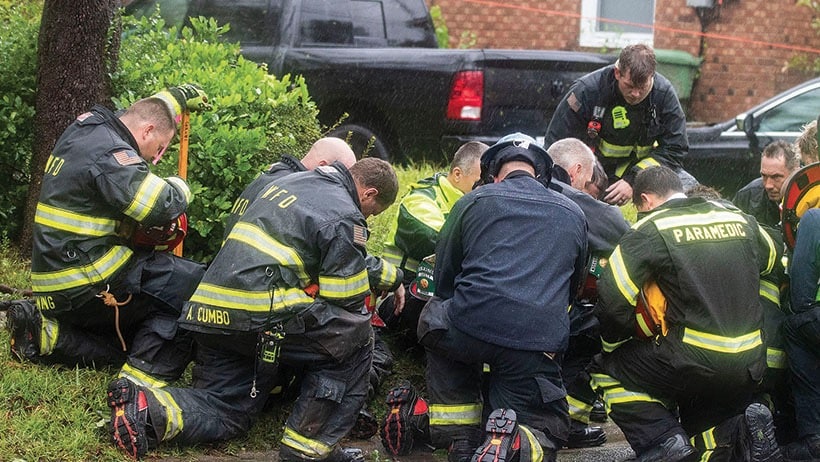
Considering this cohesiveness and interconnectedness, “we could say that the hardest one is the very first one,” Father Kirby said. “It can be a difficult admission for someone in the West to acknowledge that they are poor in spirit, namely, that they are not where they need to be spiritually and morally and that they do not have the power by themselves to get there.” This is one of the challenges which Jesus presents us with in the Beatitudes, taking us outside of our comfort zones and demanding a change of heart. “In summary, the acceptance that we truly need God can be a very earth shattering reality for the vain or proud of heart.”
“While never comfortable, the Beatitudes are our sure path to cooperate with grace and grow in wisdom and love,” he said. Furthermore, following a multi-millennia tradition of using the Beatitudes extensively in homiletics, catechetics and evangelization, Father Kirby points out that they continue to be a great resource “as we seek a renewal of these areas of the Church in the New Evangelization.”
The Beatitudes are a great gift to the Church, the value of which must not be underestimated, Father Kirby said. “They once again offer us guidance and help in pursuing happiness and holiness in our lives and authentic reform in the Church.”
THE BEATITUDES IN THE WORLD
Practical application of the Beatitudes is reflected well in the work of the Church
By Paul Senz
The U.S. Conference of Catholic Bishops has many departments and offices, helping to coordinate the work of the bishops throughout the country and around the world. The offices are filled with specialists who assist the bishops in their pastoral ministry. One of these offices is the Committee on International Justice and Peace, which assists bishops in advancing the social mission of the Church through policy development, education and much more.
Virginia Farris is a foreign policy advisor for the committee. There are four staff members, each of whom specializes in handling a geographic area and a particular issue. Farris’ work focuses on Asia (South, Southeast and East Asia) and the issue of human rights.
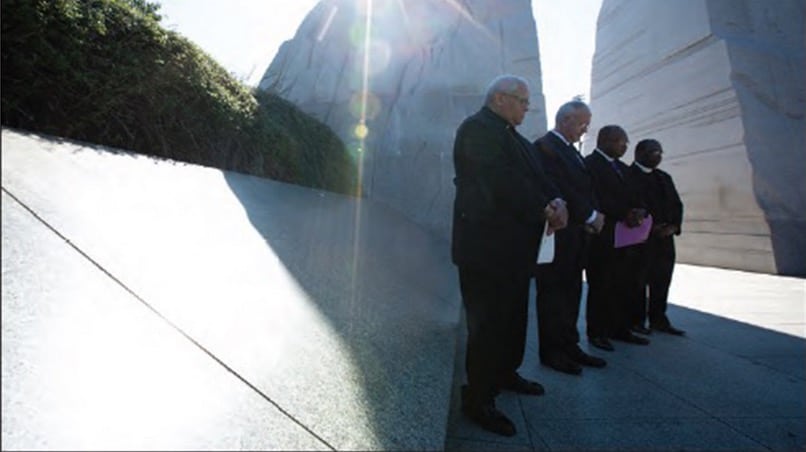
Farris said that the work she does is most closely related to three of the Beatitudes: “Blessed are they that hunger and thirst for righteousness, for they will be satisfied”; “Blessed are the peacemakers, for they will be called children of God”; “Blessed are they who are persecuted for the sake of righteousness, for theirs is the kingdom of heaven.”
The Committee on International Justice and Peace works to raise the profile of the poor and most vulnerable, “to give a voice to their condition, so that policy makers and the general public have an awareness of the need to help ‘the least of these,'” Farris said. The office works hard to gain support for international assistance in the federal budget, assisting those who don’t have them to get the food, medicine and other aid they need. They strive to help those who suffer from man-made disasters, such as war, and refugees who are fleeing conflict.
Farris deals a lot with issues of religious freedom around the world, which, “in the international context, are often issues of life and death.” “I’ve certainly seen a lot of persecution,” she said, “whether in the Middle East against Christians and other minorities, but also in places like Myanmar, where Rohingya Muslims flee from attacks by Buddhists; in Malaysia, where non-Sunni, Christians and Hindus are harassed; in India, where Hindus have attacked Christians; and in Nigeria, where Boko Haram has run a violent campaign, capitalizing on conflict between predominantly Christian farmers and Muslim herders over resources.”
What is heartening and encouraging for Farris is that the Church plays a key role as peacemaker in many of these instances, even in situations where it represents a small part of the population. The Church attempts to bridge the sectarian, tribal, ethnic divide to bring opposing parties together.
There are many ways in which we can be merciful, heeding Jesus’ call. The Catholic tradition, pulling from the Prophet Isaiah, the mitzvah of hospitality, and the Book of Tobit, has identified eight corporal (or physical) works of mercy: to feed the hungry; to give drink to the thirsty; to clothe the naked; to shelter the homeless; to visit the sick; to visit the imprisoned or ransom the captive; to bury the dead; to give alms to the poor. There are also the spiritual works of mercy, taken from the Prophet Ezekiel and other Old Testament texts: to instruct the ignorant; to counsel the doubtful; to admonish sinners; to bear patiently those who wrong us; to forgive offenses; to comfort the afflicted; to pray for the living and the dead. The Church, recognizing the beatitudes as a call to action, have identified all these ways and more for us to live and be merciful.
Dignity and mercy
Many of the offices of the USCCB — and similar offices in individual dioceses — reflect this call to be merciful.
“‘Blessed are the merciful, for they shall be shown mercy’ — Through compassion demonstrated through acts of service, the work of USCCB/MRS Children’s Services is very much aligned with this beatitude in particular,” said Katie Kuennen, associate director of children’s services for the USCCB’s Migration and Refugee Services.
According to Kuennen, the work of the USSCB/MRS, and specifically Children’s Services, is an effort to “consistently strive to uphold the dignity of every person and to lift up the most vulnerable among us.” Through the various programs coordinated by the organization — including foster care for refugee and immigrant children and family reunification services — they engage with Catholic partners across the nation to ensure the safety and well-being of children, to strengthen families and to promote community integration.
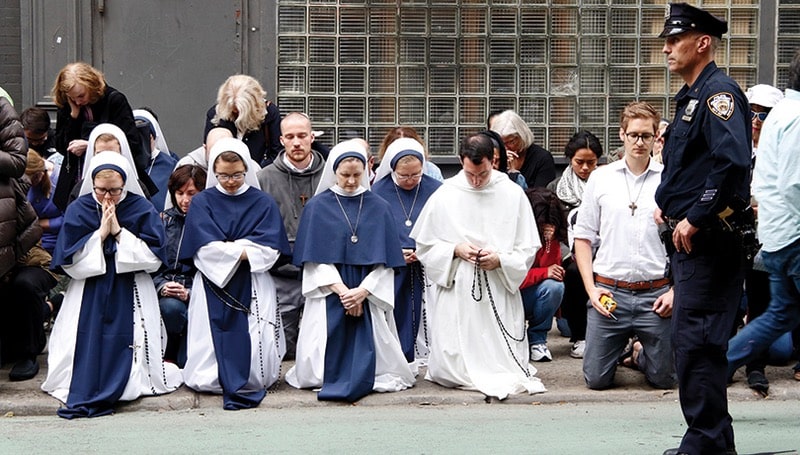
“Refugee and migrant children arrive to the United States seeking safety,” she said, “and often arrive with little to no material possessions, resources, or support system in place, leaving them increasingly vulnerable and at risk for trafficking and exploitation.” The plight of the refugee is a dramatic example of situations that can be helped by Christians the world over truly living the Beatitudes. “Our daily work on behalf of refugee and immigrant children is reflective of the Beatitudes in the compassion with which we — and our partner Catholic agencies — carry out the mission of MRS, working tirelessly, ‘Creating a world where immigrants, refugees, migrants and people on the move are treated with dignity, respect, welcome, and belonging.'”
Kuennen feels that it is important to let the words of Jesus guide our lives, lest the words become no more than an intellectual exercise. In particular, she said, we should be converted by Jesus’ concept of welcoming the stranger. “Refugee and immigrant children are the ‘stranger’ in our midst,” she said, “and Jesus calls us to be welcoming and to open our hearts — and in the case of vulnerable youth without caregivers, our homes.” As Jesus told his apostles, when we are judged, we want to hear him say to us, “For I was hungry and you gave me food, I was thirsty and you gave me drink, a stranger and you welcomed me” (Mt 25:35).
In the United States, racial tensions present a paramount barrier to blessedness. Danielle M. Brown is the associate director of the Ad Hoc Committee Against Racism of the USCCB.
“The Beatitudes implicitly guide our work in all that we do,” said Brown. There are three Beatitudes in particular which Brown sees as inspiring the work of the committee: blessed are those who mourn; blessed are those who hunger and thirst for righteousness; and blessed are those who are persecuted for the sake of righteousness. The committee allows the bishops to “take up the task of standing in that mourning with members of the flock most affected by the disparities woven into American life,” Brown said. They stand with and for those who long for the righteousness of human equality.
“One does not have to search far for people, particularly Christians, who are persecuted for the sake of righteousness and for the sake of the rights imparted to them by Almighty God such as the simple right not to be treated unfairly due to their race or ethnic background,” she said.

